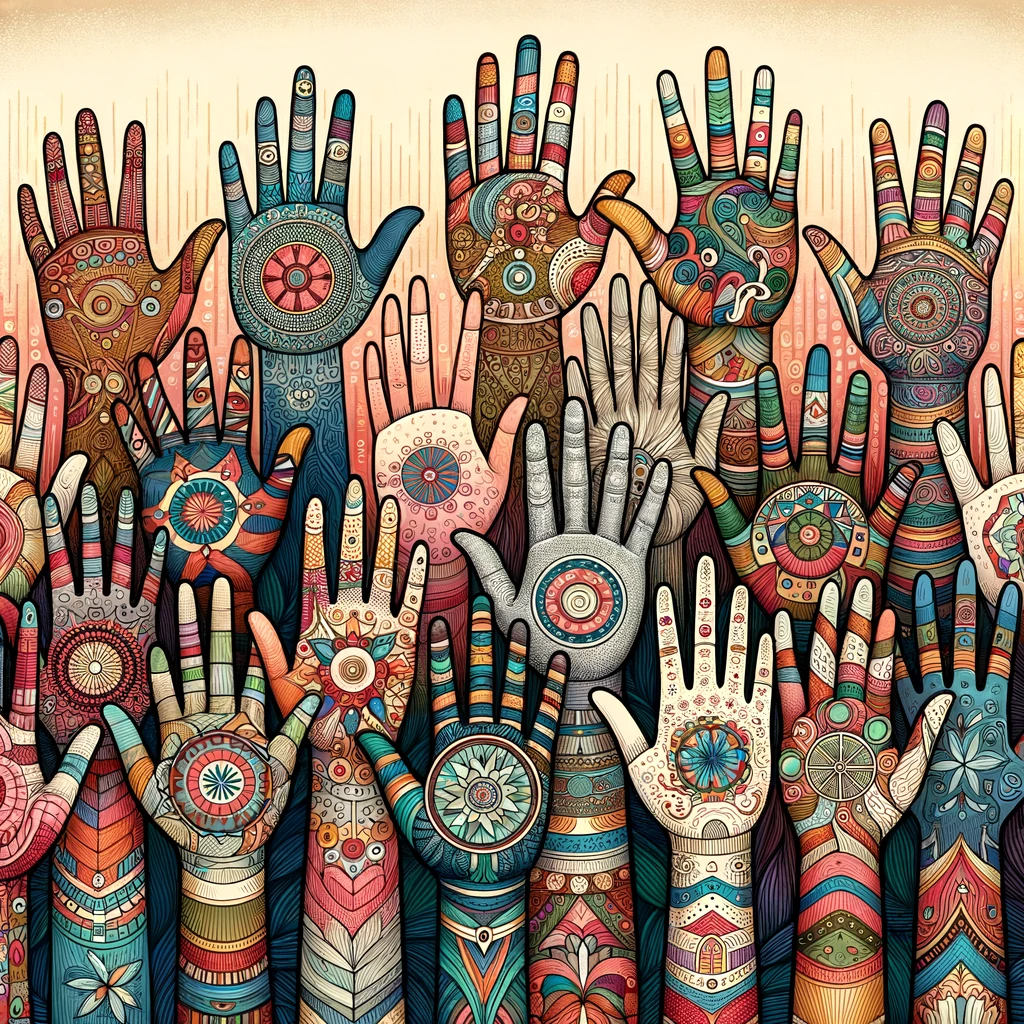The impact of self-help books has gained immense popularity as a means for individuals to enhance their lives and achieve personal growth. These books offer strategies and techniques that promise to improve success, confidence, and assertiveness. While the effectiveness of self-help books may vary, they can be a valuable tool for anyone seeking positive changes in their life. It’s important to understand who can benefit from these books, as well as some potential drawbacks. Additionally, finding the right self-help book and knowing how to maximize its impact is crucial for achieving personal growth and improvement.

Key Takeaways:
- Self-help books can positively impact personal development and mental health improvement.
- They provide motivation, and self-confidence, and promote positive thinking.
- Explore self-help tips, strategies, and techniques to enhance your life.
- Consider potential drawbacks and the importance of finding the right book.
- Learn how to maximize the impact of self-help books for self-improvement.
Who Can Benefit from Self-Help Books?
The impact of self-help books has the potential to benefit anyone who is looking to improve themselves and their lives. Whether you’re into fiction or non-fiction, the impact is significant. These books are not limited to a specific audience but can be valuable resources for personal growth and development. Whether you want to learn new skills, enhance your assertiveness, improve problem-solving abilities, cultivate tidiness, or increase your happiness, self-help books can provide guidance and inspiration.
“Self-help books offer valuable insights and strategies for personal growth.”
Self-help books offer valuable insights and strategies for personal growth. They can teach you how to navigate challenging situations, develop positive habits, and overcome obstacles. By reading these books, you can gain a better understanding of yourself and acquire practical tools for personal improvement.
Furthermore, self-help books are particularly effective in teaching skills that can be applied to various aspects of life. For example, if you struggle with assertiveness, a self-help book can provide techniques and exercises to help you build confidence and communicate effectively. Similarly, if you need guidance on problem-solving or desire to maintain a tidier living space, self-help books can offer practical tips and step-by-step approaches to support your growth in these areas.
In summary, self-help books are beneficial for individuals seeking personal growth and development. Their guidance can help you learn new skills, enhance your assertiveness, improve problem-solving abilities, cultivate tidiness, and increase your overall happiness. By exploring the wide range of self-help books available, you can find resources that resonate with your goals and aspirations, enabling you to embark on a journey of self-improvement and positive change.
| Skills Benefited | Examples |
|---|---|
| Assertiveness | Learning techniques to communicate effectively and confidently. |
| Problem-solving | Gaining strategies to approach and overcome challenges. |
| Tidiness | Receiving guidance on organizing and maintaining a clutter-free environment. |
| Patience | Developing techniques to cultivate patience and resilience. |
| Happiness | Exploring practices to foster joy, gratitude, and positivity. |
Can Self-Help Books Be Bad for You?
While the impact of self-help books can be positive for many, it’s crucial to recognize they may not be suitable for everyone, especially those dealing with clinical disorders such as anxiety and depression. For a deeper dive into this, check out our article on The Great Debate: Are Self-Help Books Non-Fiction? While these books can provide valuable insights and strategies, they should always be used in conjunction with professional guidance. Self-help books are not a substitute for professional intervention and treatment when dealing with psychological disorders.
It is crucial to seek professional help if you experience persistent feelings of low mood, low self-esteem, loss of interest, or pervasive anxiety or fear. Self-help books can be a valuable supplement to therapy, but they should not be relied upon as the sole source of treatment.
If you are facing clinical disorders, it’s essential to consult with a mental health professional who can provide personalized guidance and interventions based on your specific needs. They can help you navigate your challenges more effectively and develop strategies tailored to your circumstances. Remember, self-help books can be a helpful tool, but they should be used in conjunction with professional support.
When Self-Help Books Can Be Beneficial:
- When seeking general personal growth and improvement
- For learning new skills and techniques
- Exploring self-reflection and self-awareness
By combining self-help books with professional guidance, you can optimize your personal growth journey and ensure that you have the right support system in place to address any underlying clinical disorders effectively.
| Self-Help Books | Professional Guidance |
|---|---|
| Insights and strategies | Personalized interventions |
| General Guidance | Tailored support |
| Self-reflection exercises | Expert analysis |
Remember, self-help books should be seen as a supplementary tool to professional guidance, not a replacement. If you are unsure about whether self-help books are suitable for you, reach out to a mental health professional who can provide you with the necessary support and advice.

Impact of Self-Help Books vs. Professional Therapy: A Comparative Analysis
When it comes to personal growth, the impact of self-help books and professional therapy often sparks debate. So, let’s break it down:
Cost-Effectiveness
- Self-Help Books: One-time purchase, ranging from $10-$30.
- Professional Therapy: Hourly rates can go up to $200.
Accessibility
- Self-Help Books: Available 24/7, read at your own pace.
- Professional Therapy: Scheduled sessions, limited availability.
Personalization
- Self-Help Books: General advice, one-size-fits-all.
- Professional Therapy: Tailored strategies, personalized feedback.
Table: Quick Comparison
| Criteria | Self-Help Books | Professional Therapy |
|---|---|---|
| Cost | $$ | $$$$ |
| Accessibility | High | Moderate |
| Personalization | Low | High |
Interesting Fact: According to a study by the American Psychological Association, 12% of adults have used self-help books, but only 59% found them to be effective, highlighting the importance of supplementing with professional guidance.
How to Get the Most Out of Self-Help Books
The impact of self-help books can make them a valuable resource for personal improvement and growth. By following a few key strategies, you can enhance your experience and maximize the benefits of reading these books.
Set Clear Goals for Personal Improvement
Before diving into a self-help book, take some time to reflect on the areas of your life you want to improve. Set clear goals that are specific, measurable, achievable, relevant, and time-bound (SMART goals). Having a clear focus will help you stay motivated and track your progress as you work through the book.
Engage in Self-Reflection
As you read a self-help book, take the time to reflect on the concepts and ideas presented. Consider how they apply to your own life and experiences. Self-reflection allows you to gain deeper insights and make personal connections with the material. It can also help you uncover any limiting beliefs or patterns that may be holding you back.
Take Action and Implement the Strategies
Don’t just passively read a self-help book; actively participate in the journey. Take notes, highlight key points, and make a plan for incorporating the strategies and techniques into your life. Remember, knowledge without action is merely an idea. Taking action is what leads to real change and improvement.
Track Your Progress
Keep a journal or utilize a progress-tracking tool to document your journey and measure your growth. Note the changes you’ve made, the challenges you’ve overcome, and the results you’re seeing. Tracking your progress not only helps you stay accountable but also allows you to see the tangible impact self-help books are having on your life.
Incorporate Different Approaches
Don’t limit yourself to just one self-help book. Explore different authors, perspectives, and approaches. Each book brings something unique to the table, and by diversifying your reading, you can gain a broader range of knowledge and insights.
Remember, the true power of self-help books lies in your willingness to engage with the material and apply it to your life. By following these strategies, you can leverage the full potential of self-help books and embark on a transformative journey of personal growth and improvement.

The Economic Impact of Self-Help Books: A Market Overview
The self-help industry is booming, but have you ever wondered about the economic impact of self-help books specifically? Let’s dive in:
Market Size
- Self-Help Books: Estimated at $800 million in 2021.
- Total Self-Help Industry: Valued at $13.2 billion.
Consumer Demographics
- Self-Help Books: Predominantly purchased by women (70%).
- Total Self-Help Industry: A mix of men and women, ages 25-44.
Sales Channels
- Self-Help Books: Online sales account for 60%.
- Total Self-Help Industry: Online and in-person events, courses, and seminars.
Table: Economic Snapshot
| Criteria | Self-Help Books | Total Self-Help Industry |
|---|---|---|
| Market Size | $800M | $13.2B |
| Consumer Demographics | 70% Women | Mixed |
| Sales Channels | 60% Online | Varied |
Interesting Fact: According to a report by MarketWatch, the self-help industry is expected to grow by 5.1% annually, with self-help books playing a significant role.
Conclusion
The impact of self-help books offers a powerful tool for personal growth and self-improvement. Through their valuable insights, strategies, and guidance, these books can have a positive impact on your life. While their effectiveness may vary, they provide a wealth of knowledge for those seeking positive changes.
To make the most of self-help books, approach them with intention and an open mind. Be willing to try the suggestions and advice provided by the author. Take action by implementing the recommended strategies and techniques into your life. Journaling about your progress can help you track your growth and reflect on the impact of the book.
Remember, personal growth takes time and patience. Enjoy the journey of self-improvement as you work towards your goals. With the right mindset and approach, self-help books can be a transformative tool for your personal development. The lasting impact of self-help books can’t be ignored, both personally and economically.
FAQ
Are self-help books effective in improving personal growth and self-improvement?
While their effectiveness may vary, self-help books can provide valuable insights, strategies, and guidance for those seeking to make positive changes in their lives.
Who can benefit from reading self-help books?
Self-help books can be beneficial for anyone looking to improve themselves and their lives. They are particularly effective in teaching skills such as assertiveness, problem-solving, and tidiness.
Should individuals with clinical disorders rely solely on self-help books?
Individuals suffering from clinical disorders such as anxiety and depression should use self-help books in conjunction with professional guidance. These books can provide valuable insights and strategies, but they are not a substitute for professional intervention.
How can I make the most of reading self-help books?
To maximize the impact of self-help books, approach them with intention and purpose. Set goals for personal improvement, read the book thoroughly, be open to suggestions, take notes, make plans, put the recommended strategies into action, and journal about your progress.
What is the potential impact of self-help books on personal growth?
With the right mindset and approach, self-help books can have a positive and transformative impact on your life, enhancing personal growth and self-improvement.
What is the overall impact of self-help books?
The overall impact of self-help books is multifaceted, offering both psychological and practical benefits. They serve as accessible tools for personal growth, skill development, and mental well-being. While not a substitute for professional guidance, they provide valuable insights and actionable strategies that can significantly enhance one’s quality of life.